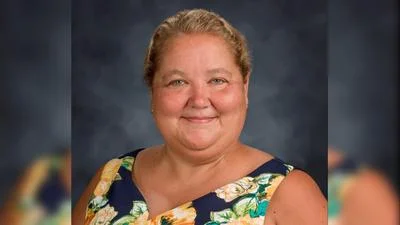Southern Illinois University Museum recently issues the following announcement.
Southern Illinois University Carbondale’s accreditation has been extended for 10 years following a comprehensive review by the Higher Learning Commission, the accrediting agency for colleges and universities in 19 states.
Chancellor John M. Dunn said the university met all of the criteria required for accreditation.
“This is a significant accomplishment that reflects several years of preparation for accreditation review,” Dunn said. “Our faculty and staff did an outstanding job engaging in the process and demonstrating the many ways we fulfilled the rigorous requirements of accreditation.”
Dunn said accreditation is an external, peer-reviewed validation of the university that underscores the quality of education it provides.
“Accreditation is a signal to our many stakeholders that we are worthy of their confidence and support,” he said.
Accreditation also authorizes the university to receive federal funding -- more than $100 million annually – for student financial aid and research grants from federal agencies. It is also mandatory for the accreditation of many programs that lead to professional licensure.
Similarly, HLC accreditation lays the foundation for the National Research Council’s rankings of graduate degree programs. Dunn added that without accreditation, the university would not be featured in the U.S. News and World Report, the Princeton Review, and the Peterson’s Guide whose annual surveys of institutions circulate widely in the popular press.
A comprehensive review
SIU has been continuously accredited by the North Central Association of Colleges and Schools (NCA) – now the Higher Learning Commission (HLC) — since 1913. The accreditation process is comprehensive and covers all aspects to the university, including the School of Medicine.
The current accreditation process began more than three years ago when a team from across the university began gathering information for the university’s “assurance argument,” a detailed document that outlines how the university meets criteria in five areas. It culminated with an on-campus visit in February by an HLC review team of peers from other institutions. The team met with a number of campus groups and held public forums or “listening sessions” to hear from faculty, staff, students and community members.
The five areas and some of the related subjects reviewed as part of the accreditations process include:
Mission: whether the mission is broadly understood, articulated publicly and demonstrates commitment to the public good
Integrity: Ethical and Responsible Conduct: whether the institution operates with integrity, presents itself clearly and completely to its students and the public, is committed to freedom of expression and has appropriate policies and procedures
Teaching and Learning: Quality, Resources, and Support: whether the institution has appropriate degree programs; supports the integration of broad learning and skills; has faculty and staff needed for effective, high-quality programs and student services; and supports student learning, effective teaching and an enriched educational environment
Teaching and Learning: Evaluation and Improvement: whether the university evaluates student learning and demonstrates a commitment to educational achievement and improvement
Resources, Planning and Institutional Effectiveness: whether the institution’s resources, structures and processes are sufficient to fulfill its mission; its structures provide effective leadership and support; and it engages in systematic and integrated planning
“The core team and subcommittees that developed the argument did an outstanding job, detailing our strengths and progress while being frank about our challenges and the steps we have taken to address them,” Dunn said. “The assurance argument is an impressive document that tells a remarkable story about SIU.”
Commission feedback
In a document affirming the university’s continued accreditation, the Higher Learning Commission indicated that SIU demonstrates a strong commitment to students.
The university “has expended significant effort and attention to providing its students with the resources necessary to support them in achieving their goals at the university,” the document said.
The commission also indicated that SIU demonstrated “commitment to student development through learning outcomes that are focused on civic and global engagement, diversity and inclusivity, creative and critical inquiry, communicative and technical literacy, ethical reasoning and professional integrity, disciplinary knowledge and application and emotional intelligence and teamwork.”
In addition, commissioners noted that “a review of the mission documents and discussions with faculty, staff and administrators indicate that there is an understanding of the mission and that elements of the mission are reflected in the curriculum, programming, co-curricular offerings, and community engagement activities at the institution.”
While the university met all criteria for 10-year accreditation, the commission encouraged the university to continue its focus on maintaining adequate staffing and financial resources and recommended that that it refresh its strategic plan when new leadership is in place.
Dunn acknowledged the core team that worked on the assurance argument and prepared for the commission’s site visit, including associate provost for academic programs Lizette Chevalier and Ras Michael Brown, Judy Davie, Julie Dunston, Michael Eichholz, Andrea Imre, Kim Little, Christie McIntyre and Julie Partridge and Ruth Anne Rehfeldt.
“I am also grateful to the many faculty and staff who worked with them on the criteria and steering committees, provided information when it was requested, and participated in the listening sessions and other meetings,” he said.
Original source can be found here.






 Alerts Sign-up
Alerts Sign-up